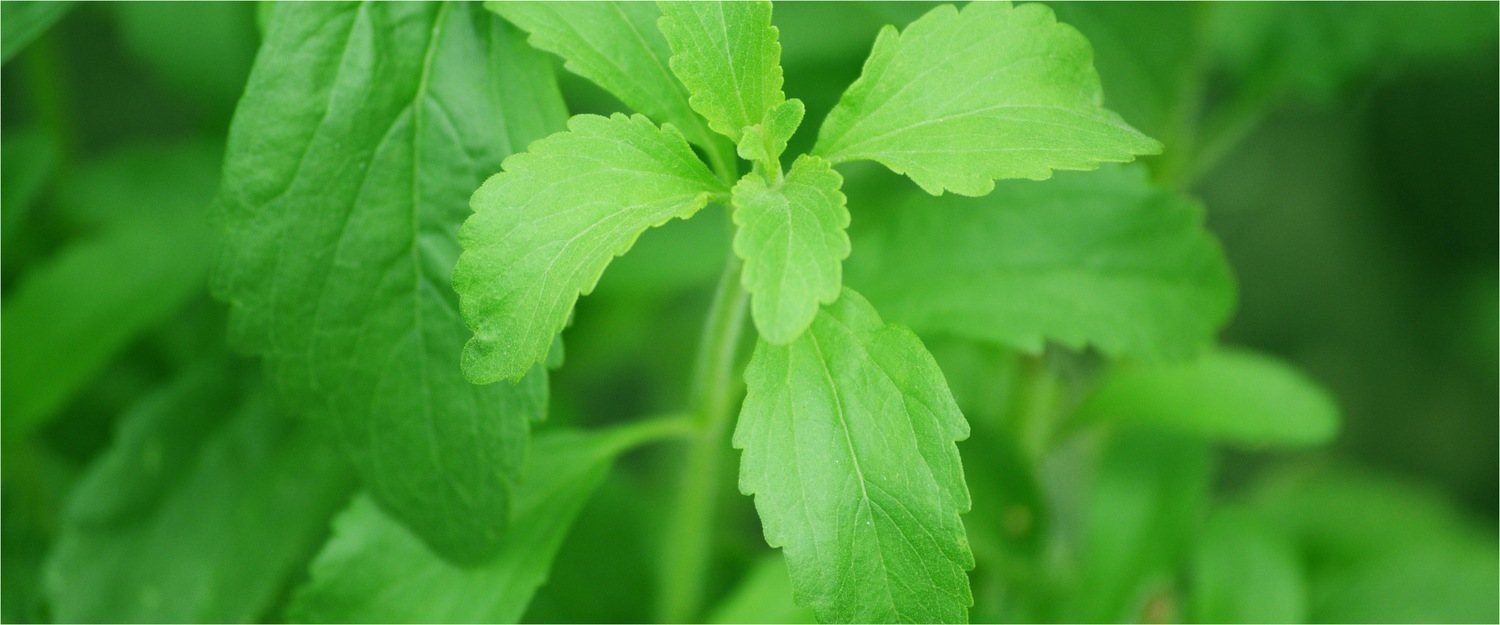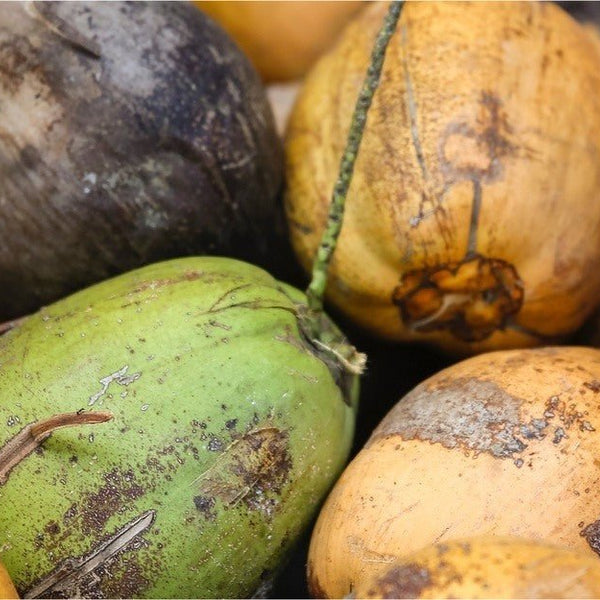
Is Stevia Low Carb?
The Natural Sweetener: Low Carb Stevia And Its Benefits
One of life’s greatest pleasures is the indulgence in something sweet, and with the rise in keto recipes and low carb baking, you may have come across many sugar substitutes. Have you heard of Stevia? Well, stevia is a natural sweetener that is extremely low in carbs and keto-friendly. To put it simply, think of it as a zero-calorie sweetener. Sounds great, right!
Natural sweeteners are a great way to curb those sugar cravings in healthier ways and assist with weight loss. Not only that, but stevia has also been found to be associated with different health benefits too. Let’s take a closer look at what makes it so good and see how stevia compares with other natural sweeteners.
What is Stevia?
Native to Paraguay and Brazil, the leaves from the plant Stevia rerebaudiana (Bertoni), have been used as a natural sugar substitute for hundreds of years. Many no sugar soft drink options contain stevia too. Stevia is a non-nutritive sweetener which means it has zero calories and is 200 times sweeter than sugar in the same concentration.
Moises Santiago Bertoni, an Italian botanist, is often credited with the discovery of stevia in the late 1800s, even though the native Guarani people had used it for centuries. Known as ‘kaa-he’ (or sweet herb) by the native population, the leaves of the plant had many uses. In traditional medicine in these regions, stevia served as a treatment for burns, colic, stomach problems and sometimes as a contraceptive. The leaves were also chewed on their own as a sweet treat.
What are the benefits of Stevia?
Diabetes Management
Type II diabetes is currently one of the biggest health problems in the world. It is characterized by elevated blood glucose in the context of insulin resistance or an inability to produce insulin. Insulin is the hormone that drives blood sugar into cells, so this appears to be the mechanism behind the blood sugar-lowering effects.
Stevia has been studied in diabetic patients with impressive results. In one of the studies, type 2 diabetic patients took either 1 gram of stevioside with a meal or 1 gram of maize starch. The group taking stevioside had a reduction in blood glucose by about 18%.
Another study compared sucrose (regular sugar), aspartame, and stevia. It found that stevia lowered both blood sugar and insulin levels after a meal, compared to the other two sweeteners. Other studies in animals and test tubes have shown that stevioside may increase the production of insulin, as well as make the cells more sensitive to its effects.
Manages Obesity
High sugar consumption is linked to weight gain, obesity and other negative effects on metabolic health. Thanks to stevia’s zero-calorie content, this natural sweetener is an effective solution to wanting to add sweetness without the calories. It is one of the most popular keto and low carb sweeteners. A 2019 study also found stevia to lower appetite sensation and reduce the tendency to overeat.
Lower Blood Pressure
Elevated blood pressure is a major risk factor for many serious diseases, including heart disease, stroke and kidney failure. Studies have shown that taking stevioside (one of the sweet compounds in stevia) as a supplement can reduce blood pressure. However, please consult a doctor about prolonged use if you suffer from chronic low blood pressure or currently taking blood pressure medications.
How can I include Stevia in my diet?
Simply use it as you would regular sugar – a pinch of powdered stevia is equal to about one teaspoon (1 tsp) of table sugar. It also comes in liquid drops or stevia tabs. You can stir some into your coffee or tea, sprinkle on unsweetened yoghurt, or even bake with it! Remember, stevia is 200 times sweeter than sugar, so a little goes a long way.
Top tip: When adding low carb stevia to your baking creations, spend some time experimenting and figuring out just how much sweetener you need to use before the baked goods become overly sweet. After all, everyone has a different preference!
Do we use stevia in any of our products?
- Low Carb Carrot Cake Mix
- Sugar Free Hot Chocolate Mix
- Low Carb Vanilla Cupcake Mix
- Sugar Free Icing Mix
- Low Carb Chocolate Cupcake Mix
- Low Carb Banana Bread Mix
If you have any questions regarding any of these products, simply contact us via our online form, call us on 02 9558 3300, or email hello@lovepbco.com.
Stevia vs Other Natural Sweeteners
Over recent times, there has been an increase in the variety of natural sweeteners available, and it can be confusing to determine which is right for you. We hear you, and we’re here to help! Let’s take a quick look at how it compares to some other popular low calorie sweeteners.
- Stevia vs maple syrup or honey: A tablespoon of maple syrup contains over 50 calories and 13g of carbs, while honey contains around 55 calories. In comparison, stevia ranks in at zero calories and a zero glycemic index, which means it won’t affect your blood glucose levels or cause any blood sugar spikes.
- Stevia vs erythritol: Erythritol is a sugar substitute known as a sugar alcohol, with a fresh, (sometimes) minty aftertaste. Most people find stevia to be a lot sweeter than erythritol. Similarly, it has a zero glycemic index and is also considered to be a keto-friendly natural sweetener.
- Stevia vs monk fruit: Monk fruit is a small round fruit, resembling a melon, native to southern China. This sweetener is made from the fruit’s extract and contains zero calories, zero carbs and a zero glycemic index. Like stevia, it is about 200 times sweeter than sugar, so less is more. This antioxidant-rich sweetener is on par with stevia!
Where can I buy Stevia?
Stevia can be purchased from just about any supermarket or health foods store and is available in both white powder and liquid forms. What’s the difference? Liquid stevia is most often used for sweetening beverages, whereas powdered form is best for cooking and baking.
Want to find more Low Carb ingredients?
Stevia is a natural sweetener with the triple zero benefits – zero calorie, zero carbs and a zero glycemic index! It’s a few hundred times stronger than white sugar, so remember a little goes a long way. We’ve explored this popular keto-friendly sweetener, but this is not the end. In fact, this blog is part of our series dedicated to the best low carb ingredients for your diet!
Xylitol
Xylitol is a type of natural sweetener called sugar alcohol that has a crystalline, granular structure with a sweetness comparable to sugar. It has 40% less calories than normal sugar – 10 calories per tsp! Xylitol is also a keto friendly sweetener and will not raise blood sugars due to its low glycemic index. Read further to learn about the health benefits associated with this sugar substitute!
Monk Fruit
Monk fruit is a small round fruit, resembling a melon, native to southern China. This natural sweetener is made from the fruit’s extract and contains zero calories, zero carbs and a zero glycemic index. It is about 200 times sweeter than sugar, so less is more. This antioxidant-rich sweetener is on par with stevia!
Information supplied by:
https://www.livescience.com/39601-stevia-facts-safety.html
Click here to see our delicious products that use these great ingredients!



